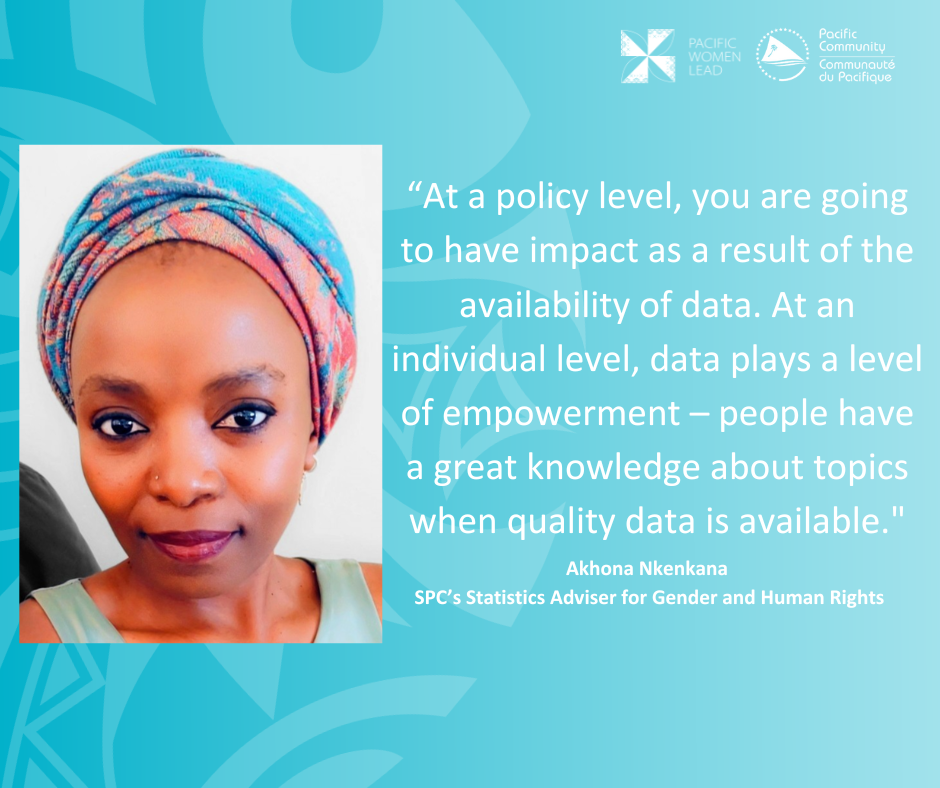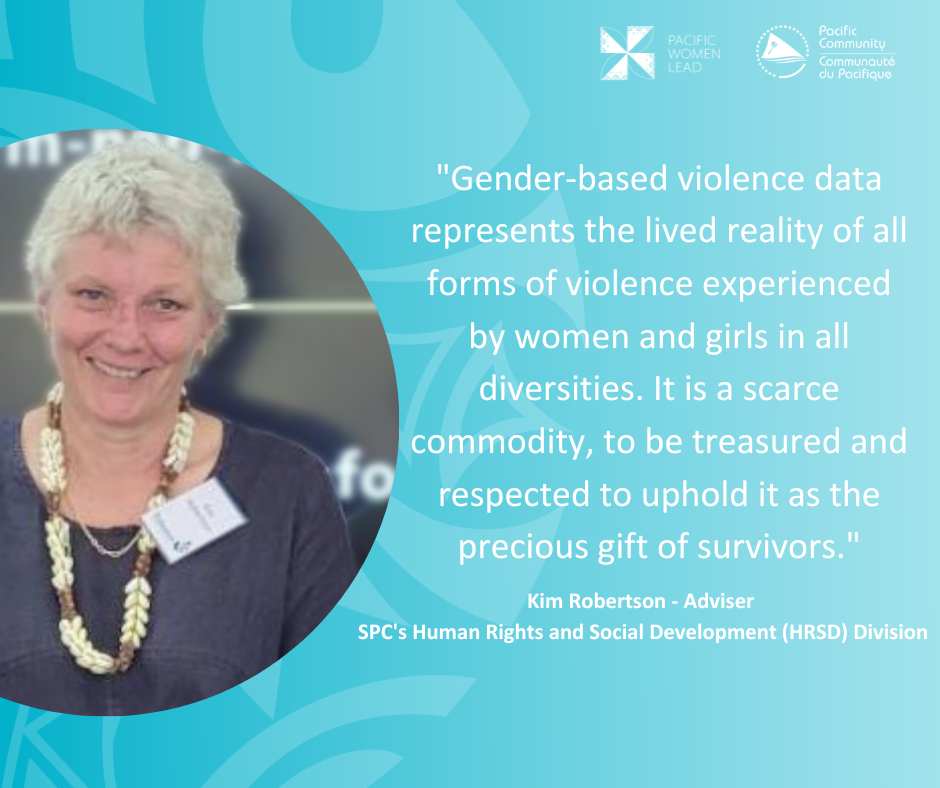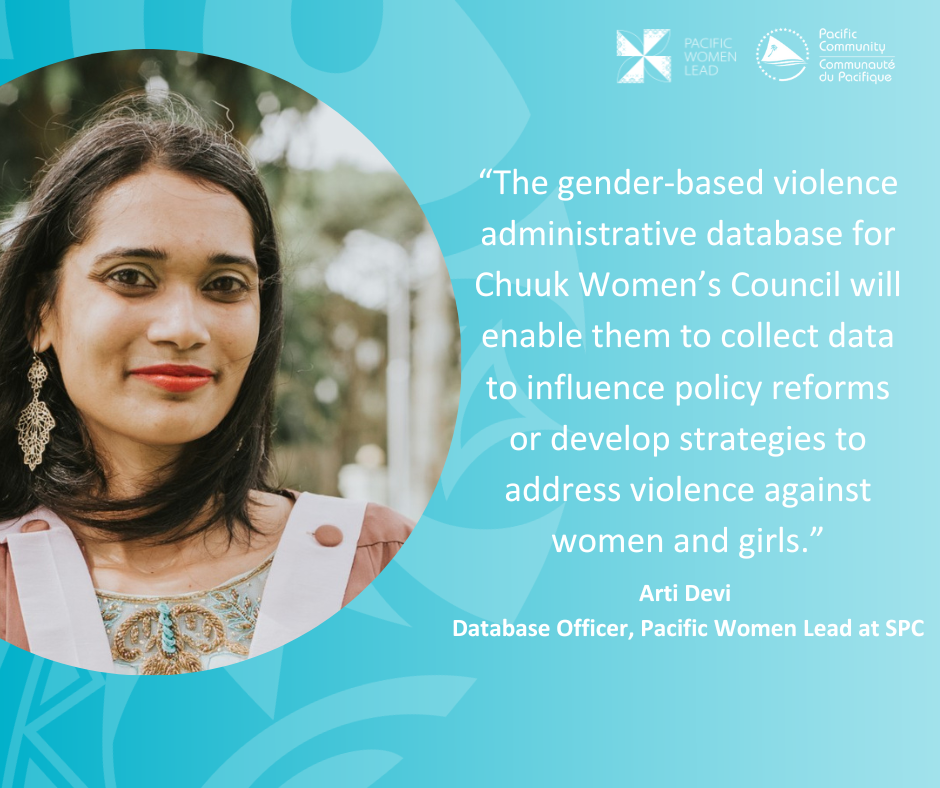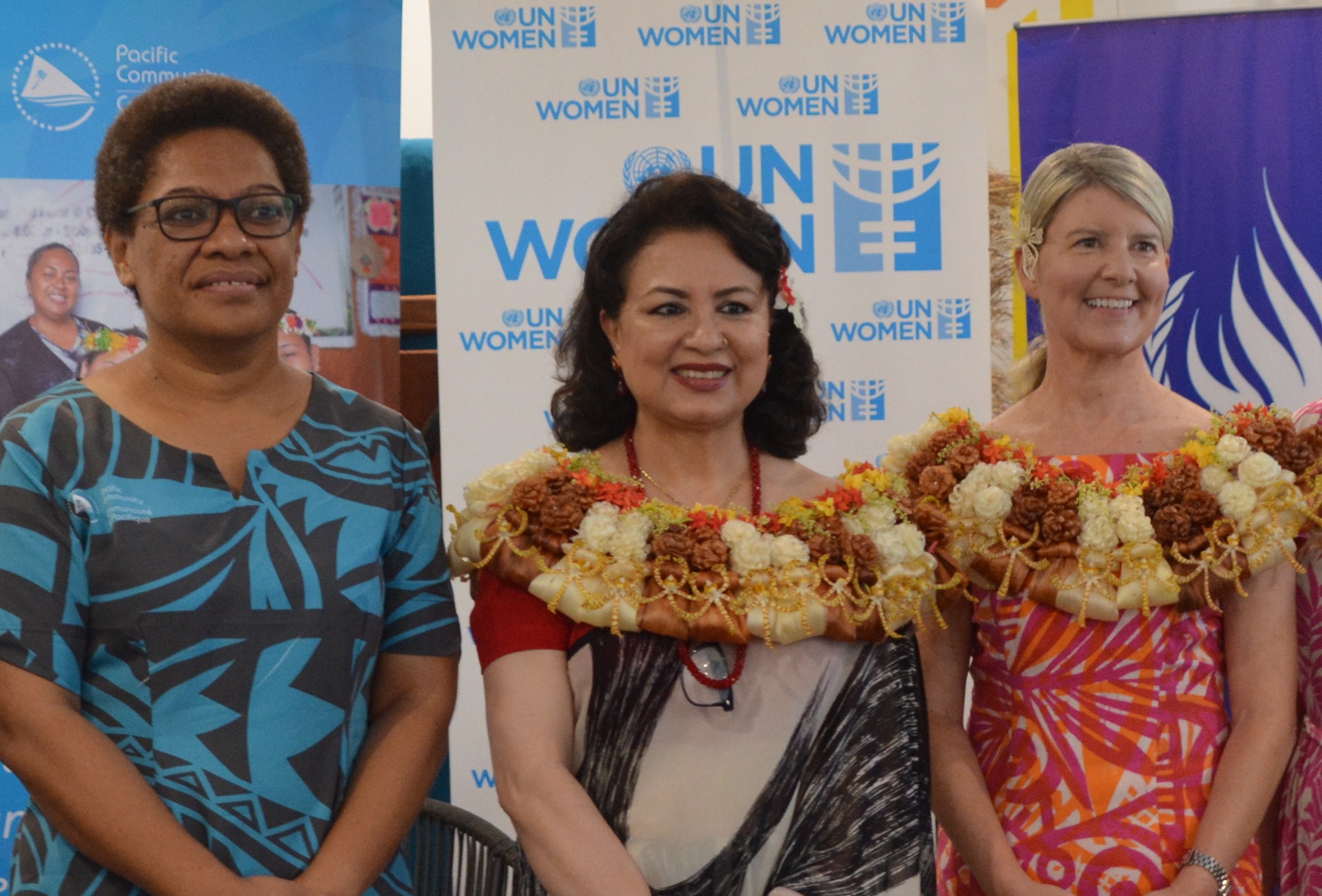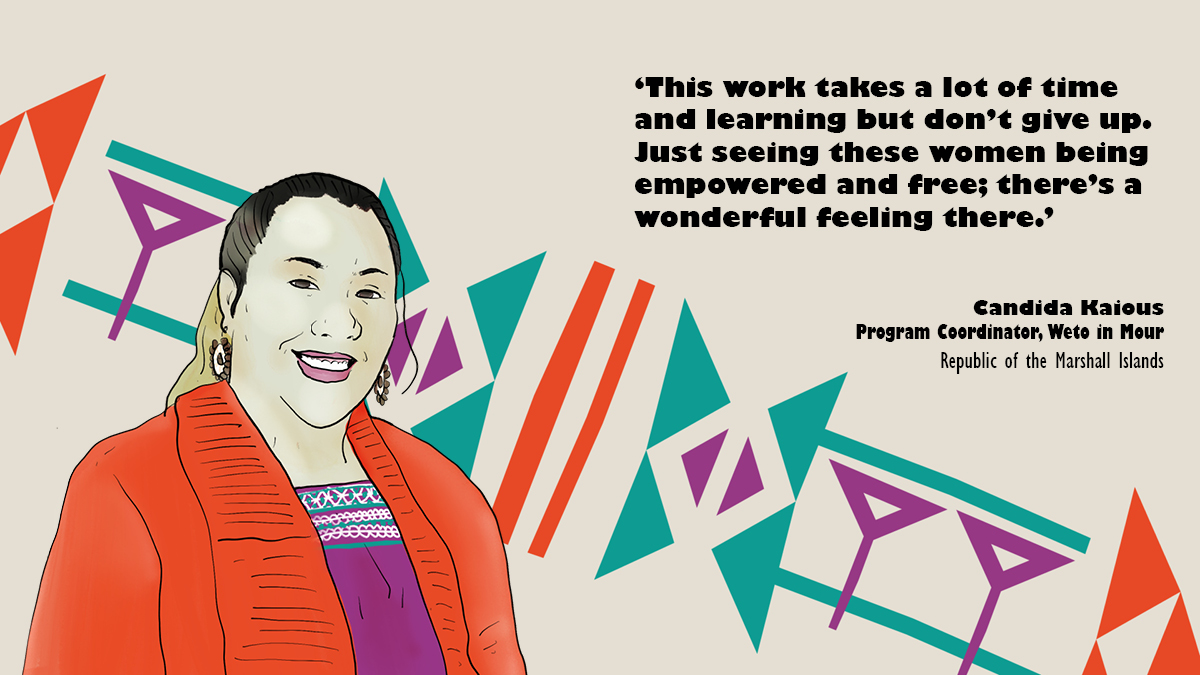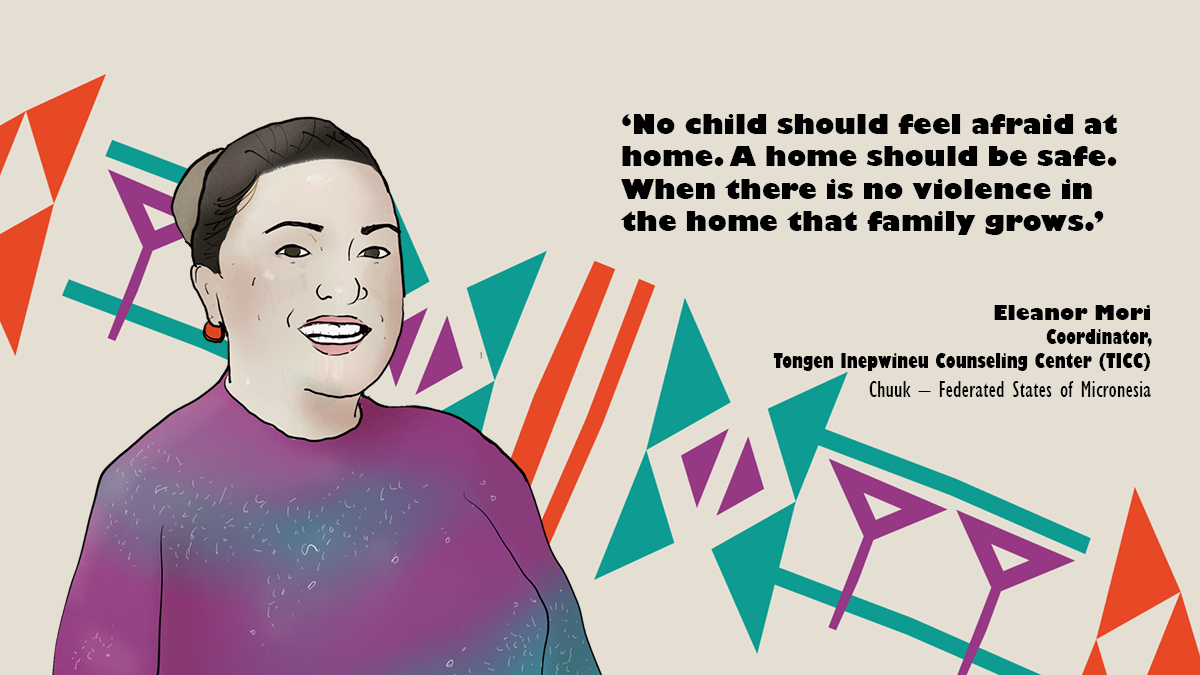Counselling an essential service for women and girls in the North Pacific
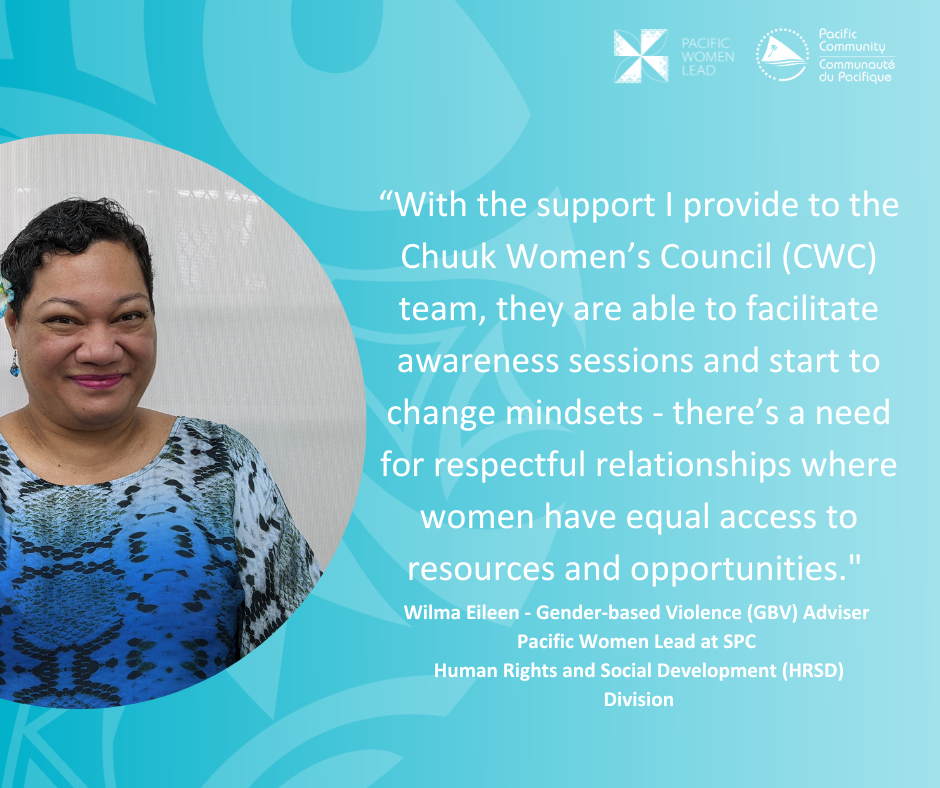
“With the support I provide to the Chuuk Women’s Council (CWC) team, they are able to facilitate awareness sessions and start to change mindsets - there’s a need for respectful relationships where women have equal access to resources and opportunities,” said Wilma Eileen, Gender-based Violence (GBV) Adviser for the Pacific Women Lead at SPC programme.
Advocacy and awareness sessions by the Chuuk Women’s Council’s (CWC) Tongen Inepwineu Counseling Center (TICC) has resulted in changed mindsets, with men now referring women relatives to the centre.
There are the only two crisis centres in the North Pacific that provide counselling services for survivors of violence against women: TICC in the Federated States of Micronesia (FSM) and the Women United Together Marshall Islands (WUTMI) Weto In Mour Counselling Centres in Majuro and Ebeye, Republic of the Marshall Islands.
In her role Wilma provides technical support to these crisis centres in the North Pacific. This includes support to the referral system in Chuuk, known as APIMAR Safenet, which includes of a range of ending violence against women (EVAW) stakeholders, from government ministries to the police and CWC.
“This referral system is working really well in Chuuk,” she explained, adding that through the referral system “stakeholders such as the police and the Attorney General’s office have called on TICC to provide counselling service to clients.”
“Women have accessed the TICC services since 2020 till now. They continue to receive cases for domestic violence and women who are survivors of domestic violence as well as child sexual abuse cases. Over the past two years, around 100 clients have visited TICC,” she added.
Wilma stated that in her line of work as a technical adviser, it is important to continuously find ways of collaboration with partners in-country because they are the experts on the ground.
Wilma’s ongoing technical support to North Pacific crisis centres includes training on gender and basic counselling skills as well as counselling supervision. Her support also includes skills training on telephone counselling for survivors of gender-based violence (GBV), which has extended to partners in other parts of the region last year including Papua New Guinea.
“We continue to provide technical support as requested with regard to counselling, but we also support them in terms of their work creating awareness on the issues of domestic violence, sexual harassment and sexual abuse of children,” she said.
In the recent past, COVID-19 has shifted counselling modalities towards telephone counselling due to restrictions in movement.
“During the height of COVID-19, the development of the ‘‘Telephone Counselling for GBV Survivors: a Pacific Toolkit’was done by technical advisers and with the counsellors in TICC and WUTMI,” she said. These technical advisers were supported through Pacific Women Shaping Pacific Development and the resource as well as the work to socialise it has now transitioned to the new Pacific Women Lead at SPC programme.
The Pacifiic toolkit was refined through pilot training sessions with the WUTMI, Chuuk Women’s Council (CWC), Tonga National Centre for Women and Children (TNCWC), the Tonga Women and Children Crisis Centre (TWCCC), the Vanuatu Women’s Centre (VWC) and the Family Support Centre in the Solomon Islands (FSC).
Central to the toolkit’s development, was GBV counsellors’ sharing of lessons learned and reflections on practice.
The eight-module course provides extensive practical exercises and real-life scenarios, to assist learners to develop the practical, ethical and ‘do no harm’ skills needed for the professional delivery of GBV telephone counselling.
While COVID-19 community transmissions only happened this past year in Chuuk, FSM, and RMI after their international borders re-opened, remote training for counsellors in 2020 and 2021 on GBV telephone counselling gave them the opportunity to prepare.
“It was good practice to have these counsellors co-develop a toolkit, undergo the training and also have the supervision support that prepared them for the response to community transmissions,” she said.
According to Wilma, their active participation in the co-design of the toolkit embeds skills that are not only useful during times of limited movement but provides the skills to connect with clients who seek their services via phone outside of Weno as well as Chuuk State.
About Pacific Women Lead
One of the largest global commitments to gender equality, Pacific Women Lead aims to promote women’s leadership, realise women’s rights, and increase the effectiveness of regional gender equality efforts.
The Pacific Women Lead (PWL) programme at the Pacific Community (SPC), termed PWL at SPC, has more than AUD 55 million dedicated to its work under the Australian Government’s AUD 170 million Pacific Women Lead portfolio. This partnership with the Australian Government commits SPC to deliver the PWL programme, as the cornerstone for the portfolio.




